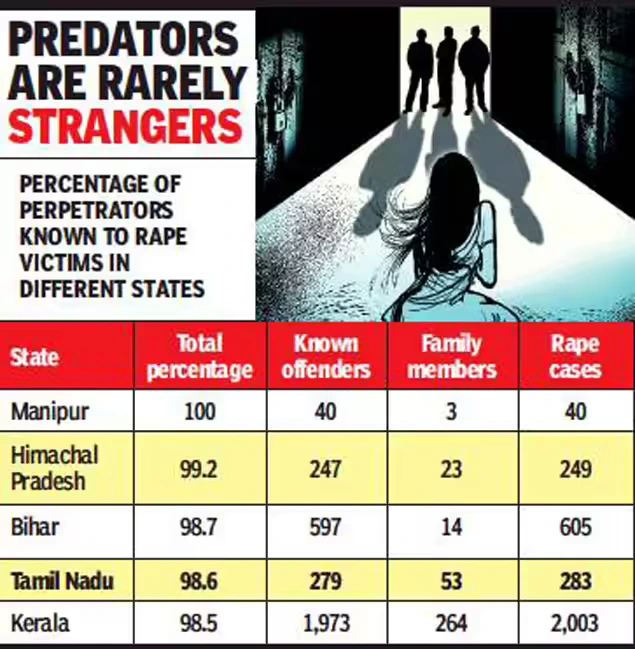Key Highlights:
- Two Tamil Nadu police constables, D Sureshraj and P Sundar, were dismissed from service under Article 311(3) of the Constitution following rape charges
- The 25-year-old victim from Andhra Pradesh was travelling to sell fruits in Tiruvannamalai when intercepted during night patrol
- Tamil Nadu recorded 8,943 crimes against women in 2023, showing a decrease from 9,207 cases in 2022 according to NCRB data
Swift Justice in Shocking Tamil Nadu Police Rape Case
The Tamil Nadu police rape case involving two constables who allegedly gang-raped a 25-year-old woman from Andhra Pradesh has triggered unprecedented swift action by state authorities. The incident, which occurred on September 30, 2025, near Tiruvannamalai’s Endal bypass road, represents a grave breach of public trust when law enforcement officers turned perpetrators. Within 48 hours of the crime, both accused officers were not only arrested and suspended but also dismissed from service without the customary departmental inquiry, marking a rare use of constitutional provisions in the Tamil Nadu police rape case.
The victim and her mother had travelled from Chittoor district in Andhra Pradesh to sell fruits at the temple town of Tiruvannamalai, highlighting the vulnerability of interstate migrant workers.
Constitutional Action Under Article 311
The Tamil Nadu government invoked Article 311(3) of the Indian Constitution to dismiss constables D Sureshraj and P Sundar without conducting a formal inquiry, demonstrating the severity with which authorities viewed the Tamil Nadu police rape case. Article 311 typically mandates that civil servants cannot be dismissed without proper inquiry where they are informed of charges and given opportunity to defend themselves. However, Clause 3 allows dismissal without inquiry when authorities determine it is not reasonably practicable to conduct one, particularly in cases involving criminal conviction or serious misconduct.
Tiruvannamalai Superintendent of Police M Sudhakar exercised this extraordinary provision, citing the heinous nature of the Tamil Nadu police rape case and need for immediate deterrent action. The decision represents one of the rare instances where police personnel faced instant dismissal without departmental proceedings in recent Tamil Nadu history.
According to legal experts, Article 311’s exception clauses are sparingly used and require substantial justification from dismissing authorities. The provision ensures administrative efficiency while balancing civil servant rights, but exceptional circumstances like the Tamil Nadu police rape case warrant immediate action to maintain public confidence in law enforcement. Deputy Inspector General G Dharmarajan of Vellore Range confirmed the dismissal was executed under constitutional provisions, emphasizing zero tolerance for such crimes by police personnel.
Crime Statistics and Women’s Safety in Tamil Nadu
Recent National Crime Records Bureau (NCRB) data reveals that Tamil Nadu recorded 8,943 crimes against women in 2023, representing a decrease from 9,207 cases in 2022. Despite this overall reduction, the Tamil Nadu police rape case highlights persistent challenges in ensuring women’s safety, particularly for vulnerable populations like migrant fruit sellers. Tamil Nadu’s overall crime rate stands at 264.9 per lakh population compared to the national average of 270.3, positioning the state marginally better than national statistics. However, custodial violence remains a concerning issue, with the state recording 478 custodial deaths between 2016 and 2021, though the Tamil Nadu police rape case represents sexual violence rather than custodial death.
The Tamil Nadu DGP has previously emphasized that increased reporting rather than increased crime accounts for higher case numbers, particularly in educational institutions and public spaces. Tamil Nadu leads the country in chargesheeting crimes against women and children at 90.6%, well above the national average of 75.5%, indicating robust investigation mechanisms despite incidents like the Tamil Nadu police rape case. Chennai ranks as the second safest city in India according to NCRB statistics, though rural areas like Tiruvannamalai face different challenges in women’s safety.
Studies by AVTAR in 2023 ranked Chennai as the most conducive city for working women among cities with populations above one million, while smaller Tamil Nadu cities like Trichy, Vellore, and Salem occupied the top five positions nationally.

Political Response and Systemic Concerns
Opposition leader and AIADMK chief Edappadi K Palaniswami strongly condemned the Tamil Nadu police rape case, describing it as a “dark blot” on the state’s law and order situation. Palaniswami criticized the DMK government, stating that women now need protection from the very police who should be their stronghold, using the Tamil Nadu police rape case to highlight broader governance failures. The incident has intensified political discourse around women’s safety in Tamil Nadu, with opposition parties questioning the effectiveness of current policing mechanisms. The Tamil Nadu police rape case occurred despite government claims of maintaining strong law and order and implementing special protection measures for women and children.
The DMK government has consistently maintained that strict action is taken in every such case, with fast-tracked legal proceedings to ensure justice and conviction. However, the Tamil Nadu police rape case raises questions about police accountability and the screening processes for law enforcement personnel. Political observers note that the swift dismissal of accused officers in the Tamil Nadu police rape case reflects the government’s attempt to demonstrate zero tolerance for police misconduct. The case has also reignited discussions about interstate coordination for protecting migrant workers, particularly women traveling for economic opportunities.
Deputy Chief Minister Udhayanidhi Stalin previously acknowledged rising crimes against women nationally while asserting that Tamil Nadu maintains lower rates than several northern states, though the Tamil Nadu police rape case challenges these assertions.
Closing Assessment
The Tamil Nadu police rape case represents a critical test of the state’s commitment to justice and police reform. The unprecedented swift dismissal of accused constables under Article 311(3) demonstrates administrative will to address police misconduct decisively. However, the incident exposes systemic vulnerabilities in protecting interstate migrant workers and ensuring police accountability. While Tamil Nadu’s crime statistics show improvement in women’s safety compared to national averages, the Tamil Nadu police rape case highlights that even states with relatively better records face challenges in preventing such heinous crimes.
The case underscores the need for enhanced police training, regular psychological evaluation of personnel, and stronger protection mechanisms for vulnerable populations. As the legal proceedings continue, the Tamil Nadu police rape case will likely influence future policy discussions about police reform and women’s safety measures across the state.


